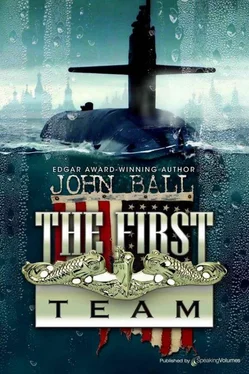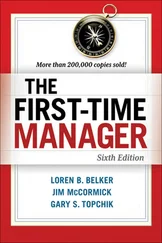Джон Болл - The First Team
Здесь есть возможность читать онлайн «Джон Болл - The First Team» весь текст электронной книги совершенно бесплатно (целиком полную версию без сокращений). В некоторых случаях можно слушать аудио, скачать через торрент в формате fb2 и присутствует краткое содержание. Год выпуска: 2013, Жанр: Триллер, на английском языке. Описание произведения, (предисловие) а так же отзывы посетителей доступны на портале библиотеки ЛибКат.
- Название:The First Team
- Автор:
- Жанр:
- Год:2013
- ISBN:нет данных
- Рейтинг книги:5 / 5. Голосов: 1
-
Избранное:Добавить в избранное
- Отзывы:
-
Ваша оценка:
- 100
- 1
- 2
- 3
- 4
- 5
The First Team: краткое содержание, описание и аннотация
Предлагаем к чтению аннотацию, описание, краткое содержание или предисловие (зависит от того, что написал сам автор книги «The First Team»). Если вы не нашли необходимую информацию о книге — напишите в комментариях, мы постараемся отыскать её.
Student protesters are being slaughtered in the Midwest.
The Jewish pogroms have begun.
You are now living in Soviet — occupied America!
One nuclear submarine and a handful of determined patriots against the combined might of Russia and Soviet-occupied America… The Most Explosive and Gripping “What If” Novel of Our Time!
First published January 1971
The First Team — читать онлайн бесплатно полную книгу (весь текст) целиком
Ниже представлен текст книги, разбитый по страницам. Система сохранения места последней прочитанной страницы, позволяет с удобством читать онлайн бесплатно книгу «The First Team», без необходимости каждый раз заново искать на чём Вы остановились. Поставьте закладку, и сможете в любой момент перейти на страницу, на которой закончили чтение.
Интервал:
Закладка:
“Yes, Mr. Zalinsky.”
“It is good. Later I may wish you to do other things as I become aware of your abilities. I now say one thing more: do not try to make manipulations against what it is that I wish.”
Hewlitt ventured a probe. “If you believe that I will do that, why are you giving me this job?”
Zalinsky hardened for a moment, then Hewlitt thought he saw him relax. “It is not necessary that we discuss this. Only I warn you — do not get away from the line. That will get you nowhere, and it will get you there with rapidity.”
Hewlitt’s mind was racing. The stakes were being raised, he saw that clearly, and he responded to it. “I’ll start moving my office immediately, Mr. Zalinsky,” he said. “Understand what I say when I tell you that I am no mind reader and you will have to tell me what your program is each day.”
“It is not necessary to instruct me in the elementary,” Zalinsky responded. “Mind readers they perhaps possess in Tibet; you are not of this breed. You will be told.”
“Yes, Mr. Zalinsky.”
“You will go.”
As he cleaned out his desk and prepared to assume his new duties, Hewlitt was still unable to sort out all of his emotions. One, however, stood out — a subdued sort of elation. He felt as though he had been sitting on the bench as a substitute and now was being sent into the big game. He would henceforth be seeing Zalinsky constantly and the invisible battle would be joined for certain. Could he take the measure of the man? He did not know, but he knew that he was going to try.
Admiral Barney Haymarket was in civilian clothes, but that fact did not diminish the aura of his rank in the least. While not a word had been said on the subject by anyone, it was tacitly understood that the “retired” which had been attached after his name some time previously had been withdrawn. How valid this premise was remained a fact known to a very few people. As was the standard practice with all retired top officers, he had been briefed on a daily basis ever since he had stepped down as Chief of Naval Operations. He had gone through the motions of accepting a job as chairman of the board of a leading civilian company, one which did not directly supply the military establishment, and then apparently had settled down to the usual routine of occasional public appearances and the accepting of appropriate awards from such suitable organizations as the National Conference of Christians and Jews.
Late in the previous administration, while he still had been wearing the four stars on his shoulder boards, he had been summoned for a very* private conference with the President. It had been unusual in that only the two of them had been together. When the coffee cups had been set down and the door firmly closed, the President had spoken his mind.
“Barney, I don’t need to tell you that I don’t like the look of things at all. I don’t think that any man who has ever sat here was really happy, but you know what the score is.”
“I do, Mr. President, and believe me, I don’t like it either.”
“All right, then, let me give you this: in my judgment we are on a course which could conceivably lead to the first military defeat in our history.”
“I agree, sir, that is my conclusion also.”
“Then we don’t need to waste time in rhetoric.” The shadow of his heavy responsibilities had crossed the President’s face. “Suppose now, Barney, that Fitzhugh and the others like him make their point, have it their way, and we more or less tear down our military structure. After that we take a pasting. Where do we go from there?”
The admiral had leaned forward to deposit cigar ashes in a tray before he had given his answer. “We would have two alternatives then: either we swallow it and do what we’re told for the indefinite future, or else we go underground and fight back one way or another.”
“Do you think that could work?”
“Mr. President, as I see it we would have to try. If we take it on the chin, then there’s nobody left and the commies will have what Napoleon, Hitler, and all the rest were denied — total world domination. And you know, sir, how they play the game. Personally I’d rather fight back and lose my life in the attempt than to knuckle down to their way of doing things. You know the reports we’ve been getting for years about the horrors the Chicoms have been dishing out. I’ve seen pictures, Mr. President, that damn near made me vomit, and I don’t have a weak stomach.”
The President had considered that in the light of his decision. “Barney, I’m going to give you a job. It’s a tough one, but you are the man for it. Your term as CNO will be over in five months; I want you to retire and go through all the motions of returning to civilian life. But what I really want you to do is to get together with a team of your own choosing, military, civilian, or both, and put together a plan for just such a resistance operation in the event of our defeat. I’ll see that it’s financed and also that you get whomever and whatever you want. But it has got to be totally secure; I’d suggest a special clearance level for anyone who even knows of the plan’s existence.”
“Mr. President, don’t we have something like this already?”
“Yes, but not to my satisfaction. I’m going to keep the other plan going, if for no other reason than to cover up what you’ll be doing. Not even the joint chiefs are going to know about this unless you approve it first. And I’m going to give you a deadline: I have a pretty good idea who my successor is going to be and I don’t at this moment have too much confidence in him.”
“I know the man you mean, sir,” the admiral had said, “and once more I agree with your conclusion. I don’t question his integrity, but in plain language he lacks guts.”
“That he does. So you have until I step down to get the job done. After that I can’t promise you a thing; so you’d better stash away whatever you’ll need now. Let me know how you’re getting on. Do you trust Colonel Gifford?”
“Totally.”
“Then I’ll see that he makes BG more or less immediately to give him a little more muscle and turn him over to you. He’s one of the most resourceful men I’ve ever met. I’ll set him up with a cover job and let him be the liaison man between us.”
At that point the admiral had gotten to his feet. “Time’s a wastin’, Mr. President, and I have an awful lot to do. I’ll send you my requisitions, personnel and otherwise, through Gifford. Have you a suggestion for a code name?”
The President had looked out of the window for a few moments while he thought. “Politics aside, there’s one American I've always admired tremendously. He was way ahead of his time and I’m not sure that he isn’t ahead of us right now. Thomas Jefferson.”
“Tom Jefferson it is, then, sir.” He had shaken hands and left. As he had climbed into his waiting staff car with the starred plate out front, his mind had already been busy planning, considering, sifting, and projecting.
All that had been a while ago, but not a long enough while for Barney Haymarket to accomplish everything that he would have liked to have done? Ten years would not have been enough, but he had put first things first and he had been helped by some of the best planning brains the country had had available. As a result he had been able to stuff enough aces up his sleeve to be in a position of some strength, although it was pitiful when compared with the total military posture of the enemy who now stood on the nation’s shores.
As he walked into the command post he had provided for the operation which would now go into effect, he knew that it was totally secure from any kind of eavesdropping activity. Delicate electronic devices in duplicate monitored the premises with a ceaseless vigil. For a bare moment he looked at General Gifford and the few others who had assembled at his bidding and who were waiting for him, on their feet, around a plain, functional table.
Читать дальшеИнтервал:
Закладка:
Похожие книги на «The First Team»
Представляем Вашему вниманию похожие книги на «The First Team» списком для выбора. Мы отобрали схожую по названию и смыслу литературу в надежде предоставить читателям больше вариантов отыскать новые, интересные, ещё непрочитанные произведения.
Обсуждение, отзывы о книге «The First Team» и просто собственные мнения читателей. Оставьте ваши комментарии, напишите, что Вы думаете о произведении, его смысле или главных героях. Укажите что конкретно понравилось, а что нет, и почему Вы так считаете.












